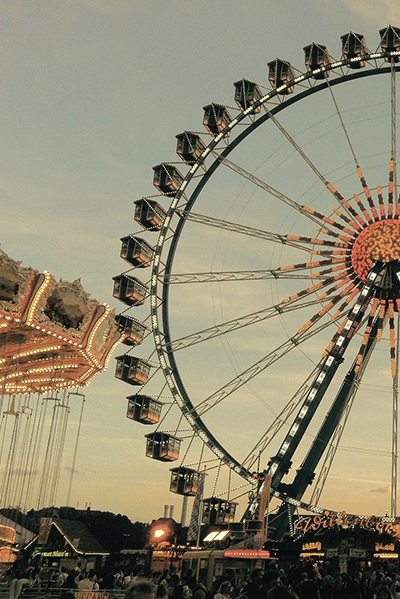
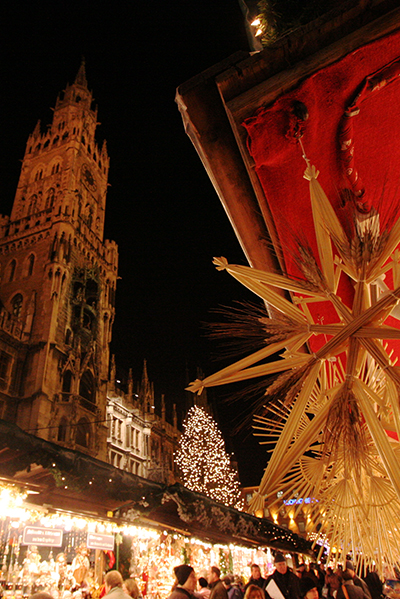
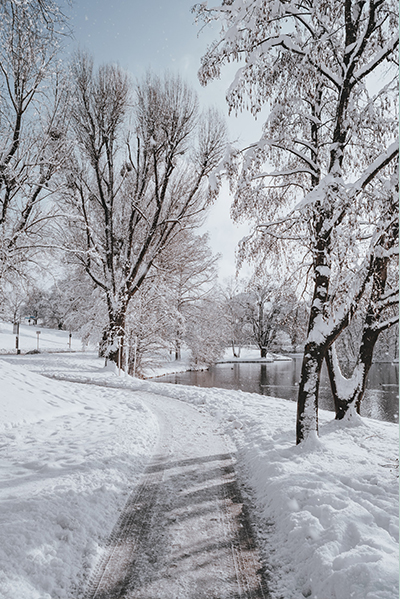
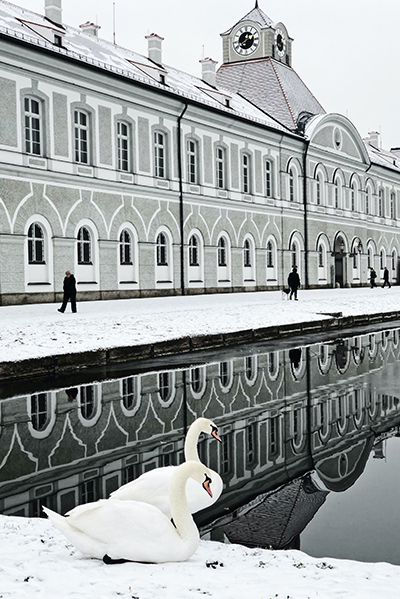
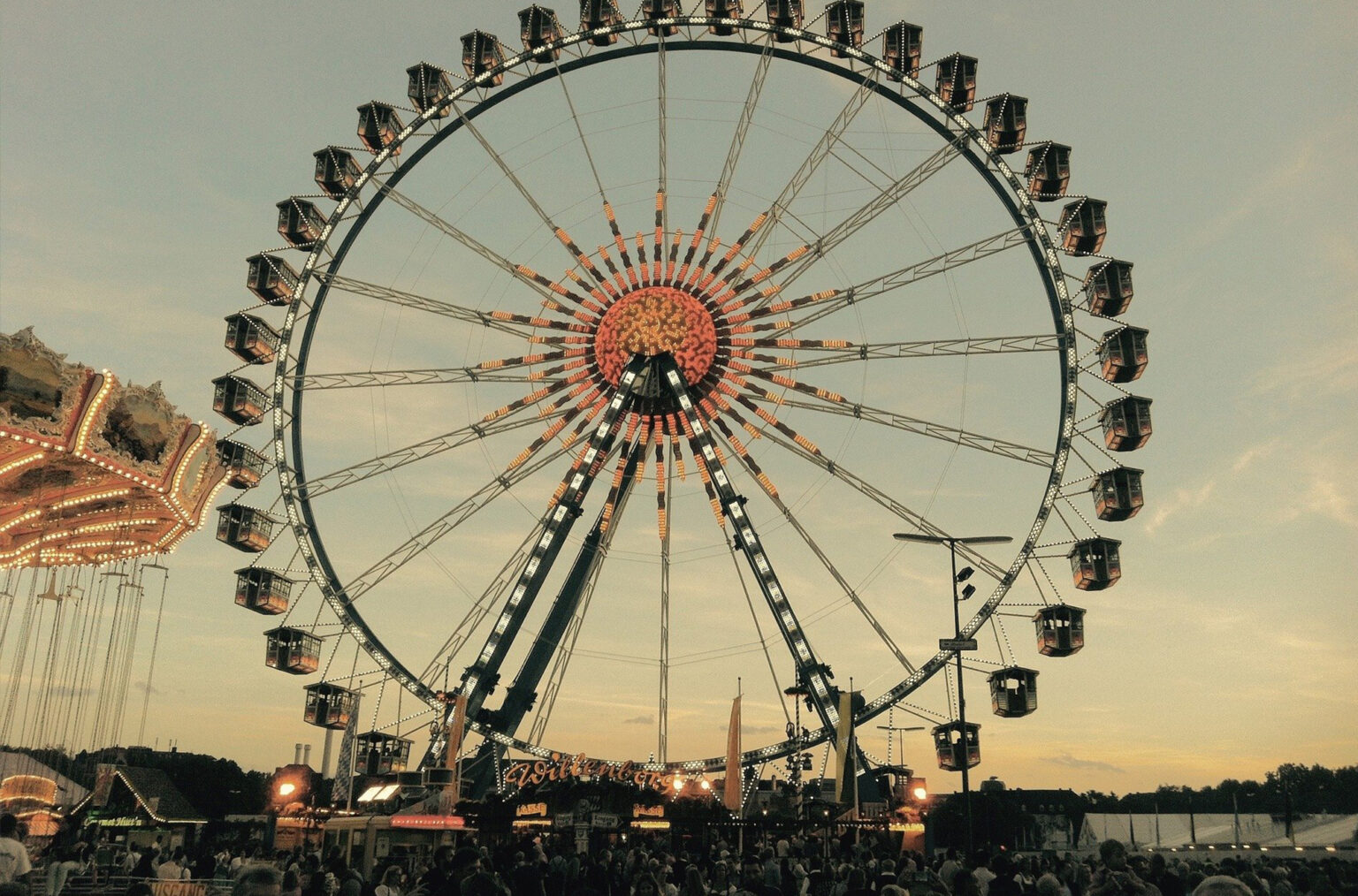
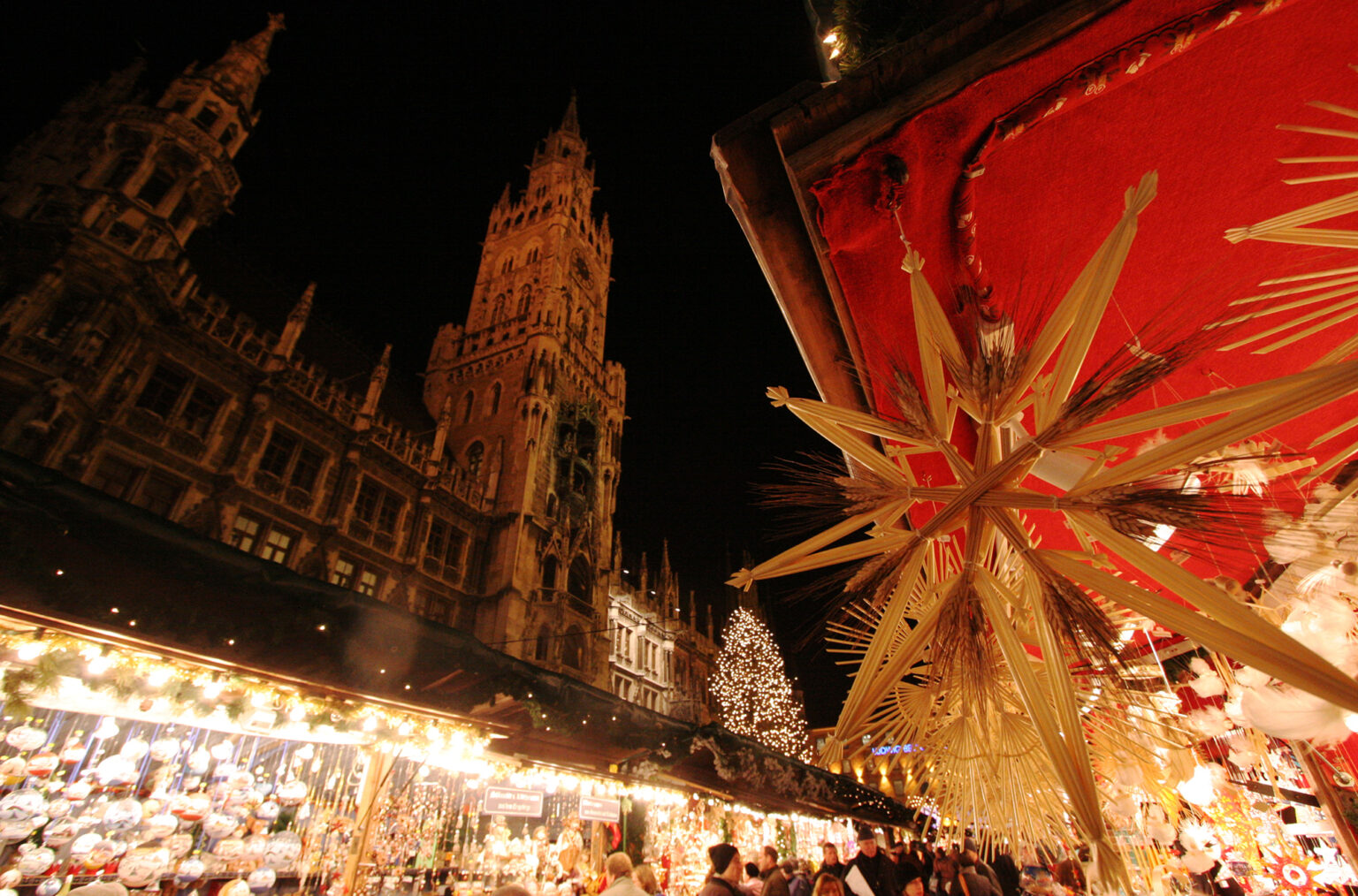
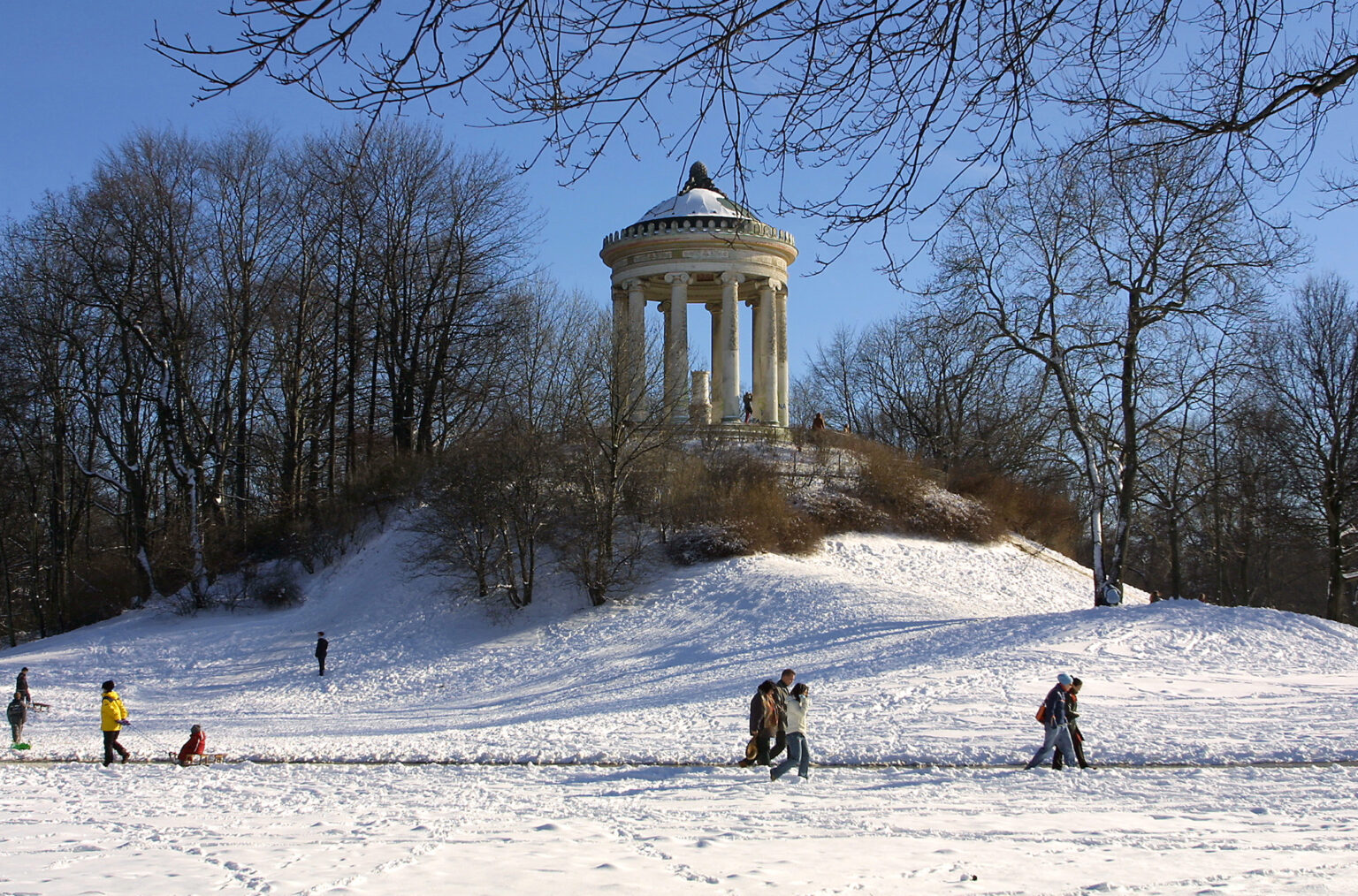
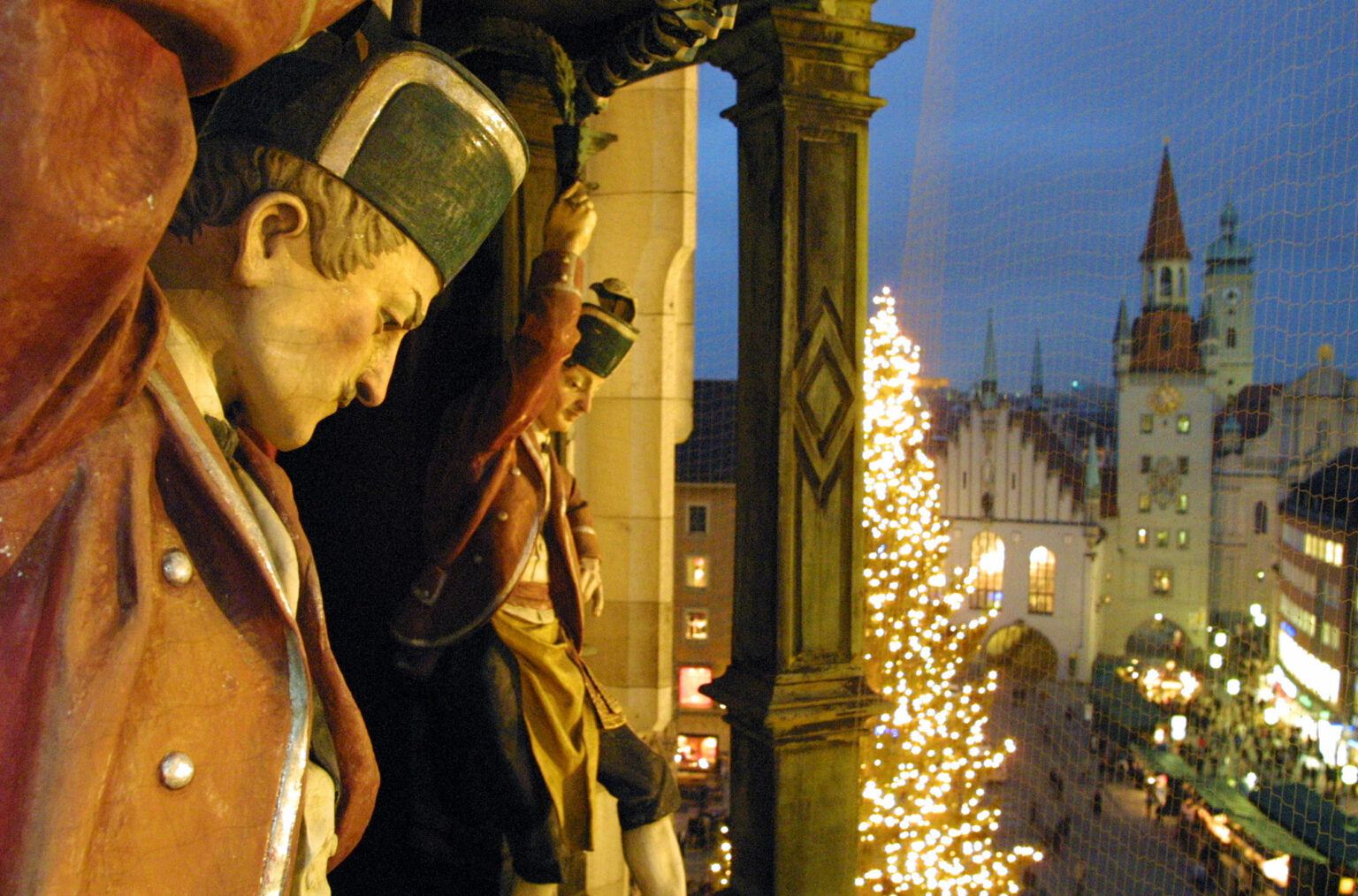
Highlights in Munich
Additional to its various cultural and sportive events Munich offers annual happenings which belong to the cultural life of the city. Please find below just a small choice of these dates. Also we keep our guests informed about special events in Munich in our Eden Hotel Wolff Facebook-group.
Seasonal attractions in Munich
The peak of the carnival in Munich is on Shrove Tuesday when the market-women invite the Munich citizens to dance with them at the Viktualienmarket. Another tradition of these days is the washing of the purses in the Fischbrunnen at Marienplatz on Ash Wednesday. This should guarantee prosperity for the next year.
A very important date in spring time is to open the furnace of the stout round Jospehitag (March 19th) when the Lenten Season is coming to its end. For this reason many breweries and inns celebrate traditional festivities. The most famous certainly takes place in Munich at the Nockherberg with the traditional „Derblecken” of the politicians. German and especially Munich politicians are imitated and criticized in a very ironic and humorous way. The beginning of this tradition can be found in the 15th century when the monks in the abbeys started to brew a very quaffable beer during the Lenten Season as they had to disclaim solid food.
Even in Munich the Irish people who live here celebrate the day of their national saint (St. Patrick’s Day on March 17th). After a parade on the Leopoldstraße there is a festival at the Odeonsplatz with traditional dancing, bands and the blessing of the Shamrock (the Irish unofficial symbol).
Munich festivals
The Munich spring time festival (changing dates from the end of April until the middle of May) is a kind of warm-up for the Oktoberfest. The so-called little sister of the biggest folk festival is as well known as „Little Wiesn“. Here you find as well two big beer tents where the opening of the first beer barrel is as well a special event and in which you may celebrate with live music like on the Oktoberfest.
Three times per year the Auer Dult, a traditional fair, takes place at the Mariahilfplatz in the Munich district Au. The first Dult of the year, called Maidult, is round the first weekend in May. The Jakobidult takes place at the end of July/beginning of August and the church anniversary dult round the 3rd weekend in October. Additional to the activities of a fair you may buy here works of art, antiques, clothing household goods, herbs and much more. The Auer Dult is as well known as the biggest market for dishes in Europe. Its origin is going back until the year 1310.
The long tradition of the Kocherlball in Munich is going back to 1880. Each Sunday morning when the weather was good up to 5000 Munich domestics (cooks, gofers, nannies butlers etc.) are meeting at the Chinese Tower in the English Garden to dance. This was only possible very early in the morning as later on they had to go back to work. In 1904 this event was forbidden due to a “lack of morality”. For the 200th birthday of the English Garden in 1989 the tradition had its revival. Since then every year on the third Sunday in July from 6 until 10 a.m. people in costumes of the 19th century meet to dance to the music of two live bands and to enjoy the special atmosphere in the English Garden at this time of day.
The Tollwood Festival is taking place twice a year – in summer from the end of June until the end of July and in winter starting at the first Sunday in Advent until Dec.23. At its start in summer 1988 it was mainly a festival for local bands and musicians, but in the meantime a lot of international musicians and artists have played here. The Tollwood Festival is based on three components: a cultural program with music, theatre and performances, bio-certified food and the so called market of ideas. The main idea of the Tollwood organizers is furthermore to create a forum for ecology and environmental awareness. It should be regarded as a platform for these topics and as an impulse for ecological projects.
Peak of the year
The peak of the year in Munich certainly is the Oktoberfest, the biggest folk festival in the world. You will find nowhere something comparable, even if many cities try to copy it. The Oktoberfest as it is known today has a history of more than 200 years. The first Oktoberfest was on Oct.17 1810. Then the Munich banker and major Andreas Dall’Armi arranges a big horse racing on a meadow beyond the Munich city walls due to the wedding of crown prince Ludwig and princess Therese. According to the name of the bride this place is called Theresienwiese since then. Therefore the Oktoberfest was called as well Wiesn. About six million people are visiting the Oktoberfest every year. The tradition of this festival should be remembered again with a smaller version, the Old Wiesn, directly in the neighbourhood of the Oktoberfest. Here you may find historical fairground rides and booths, a small beer tent and a beer that is especially brewed for this event. This idea was appreciated especially by the Munich people so that this event will take place as well in the future and has its place in the Munich culture.
The winter in Munich
The final of Munich’s cultural year are the various Christmas markets in the different districts. The biggest and most famous one is of course the Christkindl market at the Marienplatz. Every evening from 5.30 p.m. until 6 p.m. there is a performance of Advent music on the balcony of the city hall. From the first Saturday in Advent until Dec.24 the numerous merchants offer everything around Christmas. A special attraction is the crib market at Neuhauser Straße where you may not only find everything for an original crib but admire as well historical cribs.